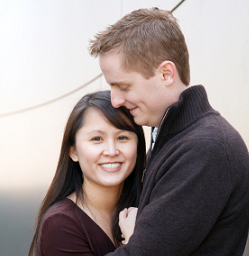 We have talked about Asians and Jews a number of times at 8asians, from Jewish/Asian marriages, to building bonds between Asian and Jewish communities and comparing limits on Asian admissions to elite colleges to admission limits on Jews during the 20th century. The recent marriage between Mark Zuckerberg and Priscilla Chan has heightened interest in this subject, so when couple Helen Kim and Noah Levitt published a paper about Jewish /Asian intermarriage, it made the New York Times. After reading the actual paper, I was surprised by a number of their findings.
We have talked about Asians and Jews a number of times at 8asians, from Jewish/Asian marriages, to building bonds between Asian and Jewish communities and comparing limits on Asian admissions to elite colleges to admission limits on Jews during the 20th century. The recent marriage between Mark Zuckerberg and Priscilla Chan has heightened interest in this subject, so when couple Helen Kim and Noah Levitt published a paper about Jewish /Asian intermarriage, it made the New York Times. After reading the actual paper, I was surprised by a number of their findings.
One statistic that stuck out was the sheer number of Asian-Jewish marriages. The paper cites a 2000 study that found that 18% of all marriages of Chinese Americans and Japanese Americans are to Jewish Americans. That’s fairly amazing considering the Jewish Americans make up only 1.7% to 2.1% of the US population. What’s the attraction? Kim and Levitt suggest that there are cultural similarities regarding education and a history of discrimination.
Another surprise (at least to me) was existence of Asian American Jews in these intermarriages. With adoptions and conversions, some of the couples in their study were both had Asian origins. I guess that is not an unknown phenomenon. Another study claimed that the happiest person in the United States was an older Asian American Jewish man, as personified by Alvin Wong.
When Mark Zuckerberg got married, some Jewish American writers talked about “losing” him. Kim and Levitt’s data show otherwise. They found that almost all the children of the Jewish Asian couples were raised as Jews. For those of you who know the children of Jewish Asian couples – do you also find that to be true?
I was disappointed that it was a “qualitative” study and not a quantitative one. They talk about some couples’ situations but can’t say what is truly representative. For example, I was surprised at the male/female ratio of Asian Americans married to American Jews in their study (it was much closer to one than I would have expected), but that may simply be an artifact of who they decided to interview. Still, it’s an interesting study to check out.








